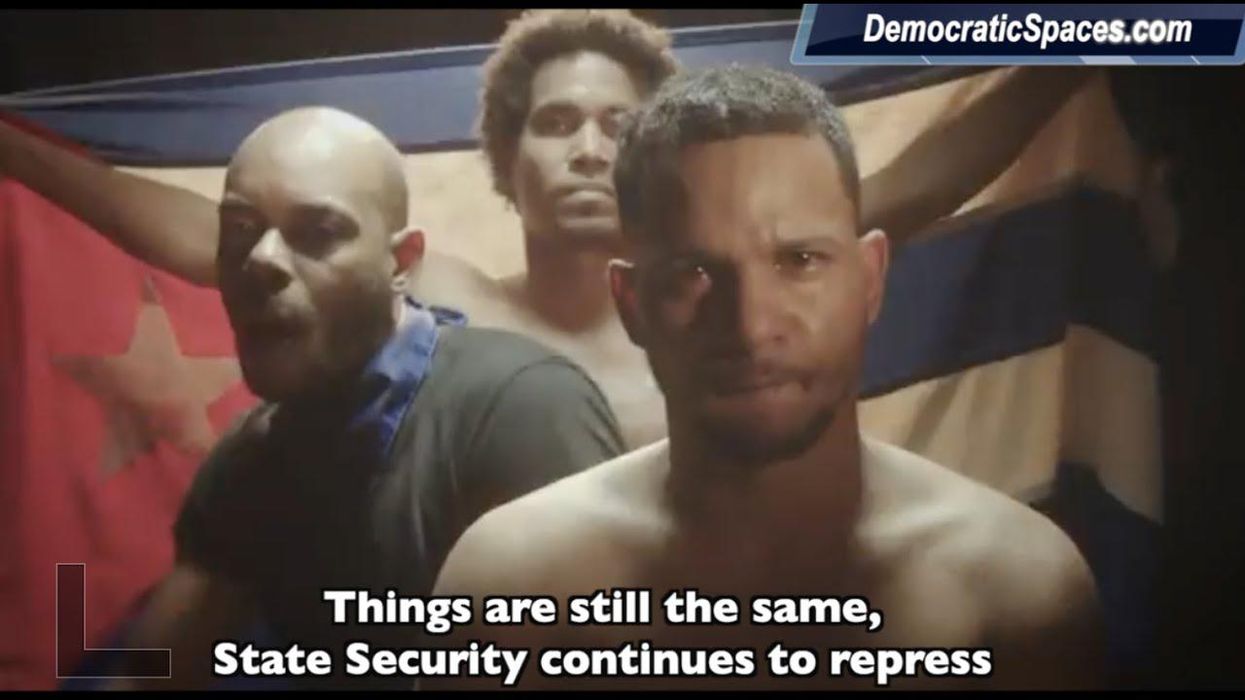The Latin Grammys were held Thursday night and "Patria y Vida" won the best song. Yotuel, Descemer Bueno, El Funky, and Gente de Zona brought the house down with a stunning performance.
The song was a rallying cry during the powerful protests last July in Cuba, as thousands marched against the communist regime and in support of Maykel Osorbo, a hip-hop artist who was jailed by the Cuban government for singing of freedom.
The Fulcrum focuses on the connection between pop culture and democracy ,and last night's Latin Grammy event spoke powerfully to this connection.
Gloria Estefan, who was born in Havana, introduced the performers as many in the audience held Cuban flags as a sign of support, and shouted "patria y vida!" "Homeland and life!")
"These are the first Grammy Awards for the people of Cuba, the first Grammys for freedom," said Yotuel Romero, one of the song's writers.
Music and all the arts can transform the narrative and engage citizens in powerful ways. That is exactly what happened last summer as hundreds of thousands of Cubans rallied around the message — and still do today. The crackdown has been harsh since July, but Romero is confident that the song has ignited a movement that will be led by the youth of Cuba.
"This is no longer a movement, it's generation. It's the generation patria y vida, " he said. "The generation patria y vida has come to bury the generation patria o muerte."
Today The Fulcrum honors all artists who remind us of the importance of a free society, and use their voice to take an unequivocal stance to support pro-democracy efforts throughout the world.
Listen to the song with, and if you need them use the English subtitles, and feel the inspiration and power of the message:
"We are artists; we stand for sensibility
We speak the true history, not of the lies they've told
We are the dignity of an entire people who have been trampled
At the point of a gun and of words that mean nothing."
We invite you to write to us at pop-culture@fulcrum.us with other examples you might have of the connection between the arts and democracy.



















Trump & Hegseth gave Mark Kelly a huge 2028 gift